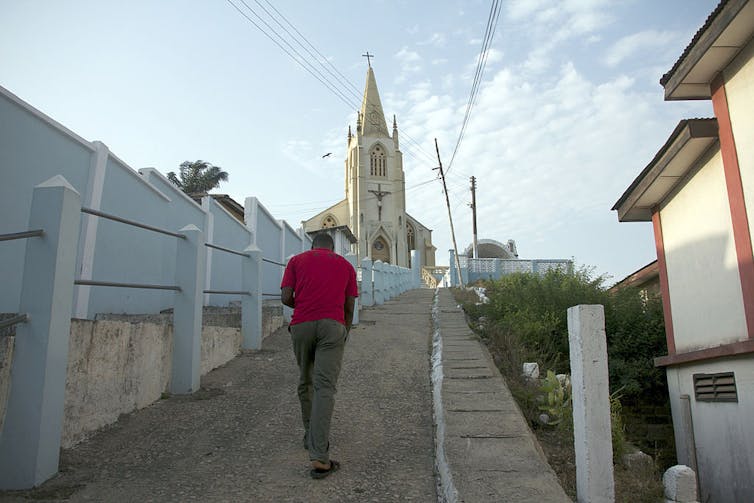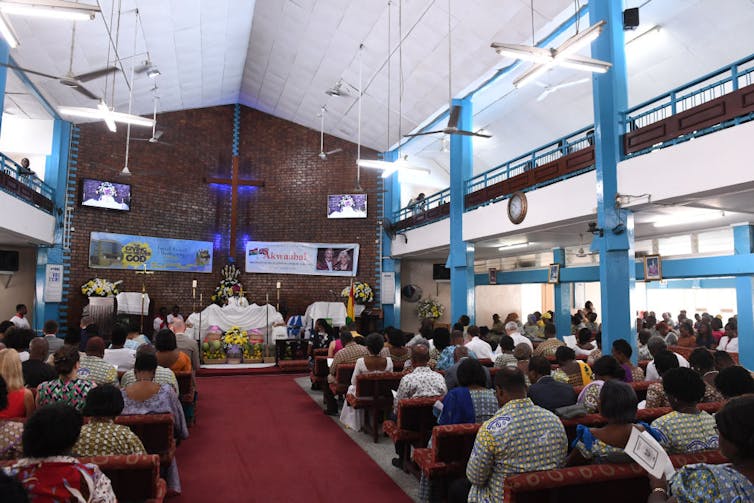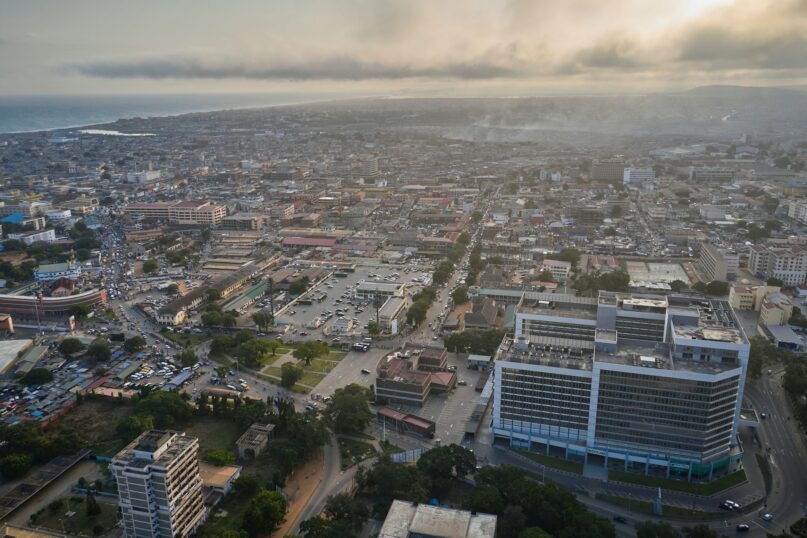(The Conversation) — Ghana’s government aims to build a national cathedral: a multidenominational, monumental undertaking to house religious services and state events. Plans include a 5,000-seat worship space, a museum and a music school, reportedly projected to cost around US$400 million.
President Nana Akufo-Addo, the project’s biggest backer, describes the cathedral in weighty terms on its website. The cathedral “provides a historic opportunity to put God at the centre of our nation’s affairs,” he writes, “and serves as a symbol of our eternal and continuing gratitude to Him for the blessings He continues to shower and bestow on our nation.”
Construction began in 2020 but has been delayed because of rising costs and the post-COVID economic downturn. These delays have also fueled public disagreements over the project’s financing, with critics and the opposition arguing it is a misplaced priority, particularly amid high poverty rates and an economic crisis. In May 2023, the International Monetary Fund approved a US$3 billion loan to Ghana.
Even if many people question the finances, however, fewer critics seem to oppose what the church symbolizes about religion and Ghanaian national identity. Not only is faith an important component of Ghanaian public life, but Ghana is also an emerging hub of global Christian culture, with church organizations exporting missionaries and religious media.
I have studied religion and politics in Africa for 15 years, using both community-based research and statistics. In many countries on the continent, Christian culture is increasingly used in politics to forge unity. This contrasts with how polarizing public Christianity has become in the U.S. and much of Europe – showing religion’s diverse political functions around the globe.

A man walks toward the St. Francis de Sales Cathedral in Cape Coast, Ghana, in 2013.
Chris Stein/AFP via Getty Images
Civil religion, civil division
Sociologists of religion often study how religious cultures shape patriotism and people’s sense of national belonging. The concept of “civil religion” refers to religious traditions and ideas that reinforce national identity, even in officially secular societies.
For example, although Christian churches and leaders have lost public authority over time in North America and much of Europe, Christian culture is still evident in the civil religion of these societies. It is visible in architectural sites, like the National Cathedral in Washington, D.C., or Notre Dame Cathedral in France. It’s evident in the use of the Christian Bible to swear politicians into office, and references to God in patriotic anthems.
Yet Christian civil religion is also contentious and is now often used to deepen partisan divides. For example, on one end of the spectrum, some U.S. conservatives claim historic Christian values are key to the nation’s identity and must be strengthened through a Christian nationalist agenda. In turn, such right-wing Christian patriotism feeds anxiety among more liberal and nonreligious Americans about how religious politics might erode the separation of church and state.
This backlash against civil religion has contributed to decreasing trust in religious leaders and declining church membership in the U.S. Elsewhere, however – as in Ghana – the use of civil religion follows a different trajectory.
New nationhood
The history of Christianity in Ghana differs greatly from the U.S. and Europe. The religion was first introduced around the 15th century by colonial missionaries from Europe, then spread more broadly through conversion movements in the 19th and 20th centuries.
Today, homegrown evangelical and Pentecostal churches are very popular, and their most successful pastors are major national figures. According to the 2021 census, more than 7 in 10 Ghanaians are Christian, representing a diverse array of churches. Thirty percent of Ghanaians belong to Pentecostal churches, 17% follow another Protestant tradition – mostly Anglican, Methodist or Presbyterian – and 10% are Catholic.

A general view of a Thanksgiving Service that Prince Charles, the Prince of Wales, attended at Ridge Church in Accra, Ghana, in 2018.
Joe Giddens – Pool/Getty Images
Religion’s role is also shaped by the fact that Ghanaian national identity is a relatively new phenomenon. Ghana won independence from Britain in 1957. Like other African nations, Ghana’s national borders had been drawn by colonialists with little regard for existing ethnic or cultural differences. The new country thus encompassed many diverse ethnic groups with complicated political relationships.
An urgent question for new countries, especially diverse ones, is how to establish a sense of national unity. Since independence, African leaders have increasingly turned to Christian culture to do this unifying work. President Akufo-Addo is not unique here: One of Ghana’s previous presidents, John Atta Mills, was known to say on several occasions that Jesus Christ was president of Ghana.
The rise of public Christianity in Ghana parallels its decline in the U.S. and Europe. As the population of the Christian world shifts “southward” toward Africa, Latin America and Asia, urban hubs of Christian activity like Accra, Ghana’s capital, are influencing Christian organizations and culture around the world through immigration and religious media.
One country, many faiths
The national cathedral plan reflects both the uses of civil religion in Ghana and the country’s emerging role in global Christianity. In addition to uses as a worship space and a venue for cultural events and state functions, the site has been envisioned as a monument to African Christian history and a draw for tourists and pilgrims.
Yet while Christianity unifies many Ghanaians, it does not include everyone. About 1 in 5 Ghanaians are Muslim, and another 1 in 10 follow indigenous faiths or none at all. Critics of how Christianity is used politically in Ghana have argued it poses a threat to human rights because it alienates religious minorities and the LBGTQ+ community.
Yet one key aspect of civil religion is how it adapts to changing demographics, and can change to stress different shared beliefs or moral principles over time. For example, civil religion in the U.S. gradually broadened from a narrow Puritan vision to include more recognition of Protestants, Catholics and Jews, as social philosopher Will Herberg first wrote about in the 1950s.
Time will tell whether Ghana’s civil religion, which encompasses many different Christian churches, will evolve to stress more commonalities between Christians and Muslims. For now, the country’s political and cultural leaders are using Christianity to try to unify their ethnically diverse nation.
(Nicolette Manglos-Weber, Associate Professor of Religion & Society, Boston University. The views expressed in this commentary do not necessarily reflect those of Religion News Service.)
![]()





